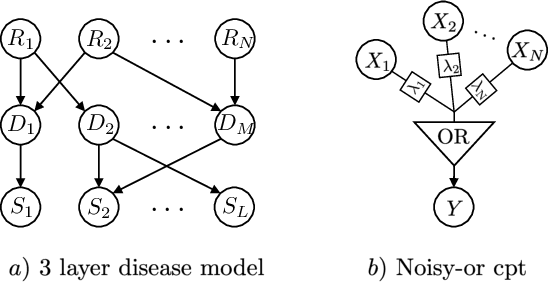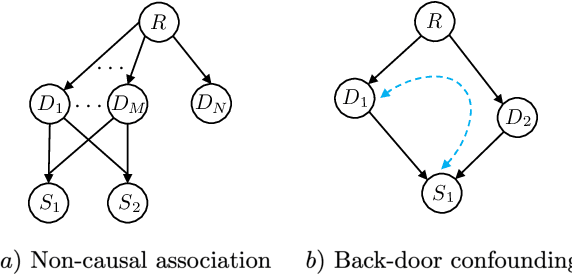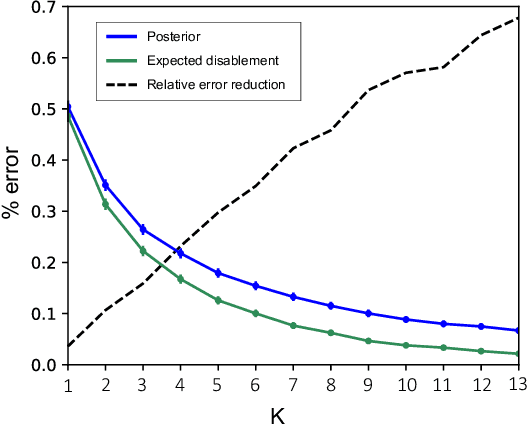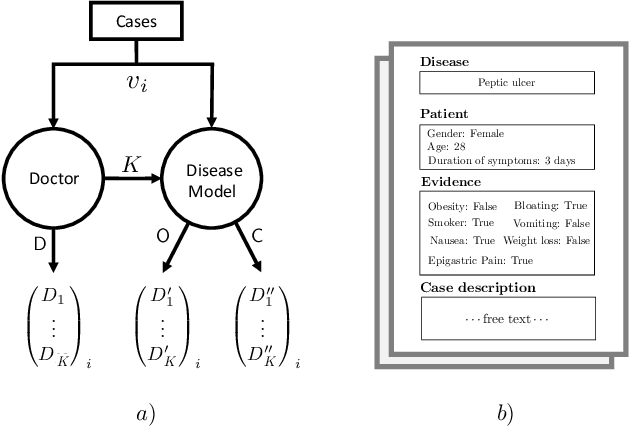Counterfactual diagnosis
Paper and Code
Oct 28, 2019



Causal knowledge is vital for effective reasoning in science and medicine. In medical diagnosis for example, a doctor aims to explain a patient's symptoms by determining the diseases \emph{causing} them. However, all previous approaches to Machine-Learning assisted diagnosis, including Deep Learning and model-based Bayesian approaches, learn by association and do not distinguish correlation from causation. Here, we propose a new diagnostic algorithm based on counterfactual inference which captures the causal aspect of diagnosis overlooked by previous approaches. Using a statistical disease model, which describes the relations between hundreds of diseases, symptoms and risk factors, we compare our counterfactual algorithm to the standard Bayesian diagnostic algorithm, and test these against a cohort of 44 doctors. We use 1671 clinical vignettes created by a separate panel of doctors to benchmark performance. Each vignette provides a non-exhaustive list of symptoms and medical history simulating a single presentation of a disease. The algorithms and doctors are tasked with determining the underlying disease for each vignette from symptom and medical history information alone. While the Bayesian algorithm achieves an accuracy comparable to the average doctor, placing in the top 48\% of doctors in our cohort, our counterfactual algorithm places in the top 25\% of doctors, achieving expert clinical accuracy. Our results demonstrate the advantage of counterfactual over associative reasoning in a complex real-world task, and show that counterfactual reasoning is a vital missing ingredient for applying machine learning to medical diagnosis.
 Add to Chrome
Add to Chrome Add to Firefox
Add to Firefox Add to Edge
Add to Edge